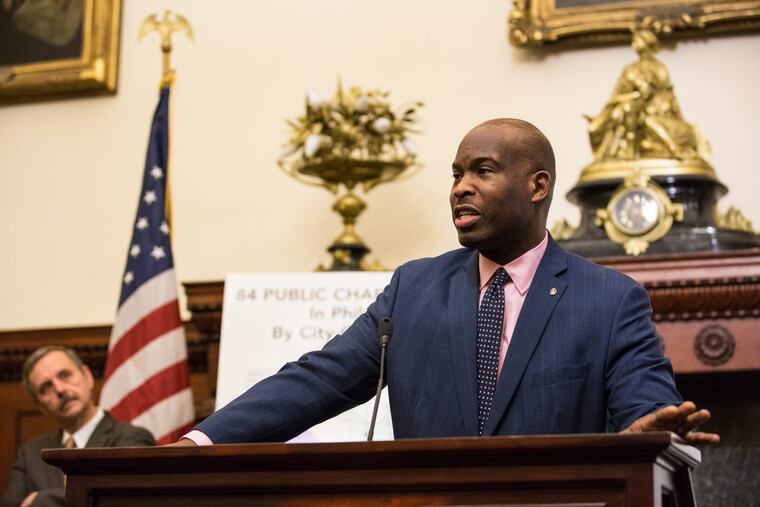Testing parolees for marijuana must end, says Philly councilman
When a parolee tests positive for marijuana, a judge can send the offender back to jail or order the person into drug treatment.

When a parolee tests positive for marijuana, a judge can send the offender back to jail or order the person into drug treatment.
A Philadelphia lawmaker wants to eliminate those penalties and the urine test for THC, the psychoactive ingredient in the drug. Councilman Derek S. Green (D., at large) said he will ask Thursday for hearings on the matter.
A violation often results in a great expense. Parolees lose whatever momentum they had in returning to a life and a job in mainstream society, he said. Taxpayers are burdened with the cost of holding the person behind bars — at $42,000 a year — or sending the offender into an expensive drug treatment programs.
The city decriminalized the possession and use of small amounts of marijuana in 2014.
It's not just about cash expense, Green said. "Sending people to jail runs counter to the city's stated goal of reducing the prison population." Green also wants to see THC testing eliminated for people on probation.
Philadelphia would not be the first to stop testing for THC, said Kier Bradford-Grey, chief of the Defender Association of Philadelphia. "New York City stopped drug testing for THC a while ago," Bradford-Grey said. "I'm hoping we catch on to the New York way."
Both Green and Bradford-Grey said beds in drug-treatment centers are filled by people who tested positive for cannabis. They could be better used to treat people struggling with heroin addiction. Over 1,000 people on probation or parole are penalized for testing positive for marijuana every year in Philadelphia, according to Bradford-Grey.
Said Green: "That takes away resources we could be using to treat opioid addiction."